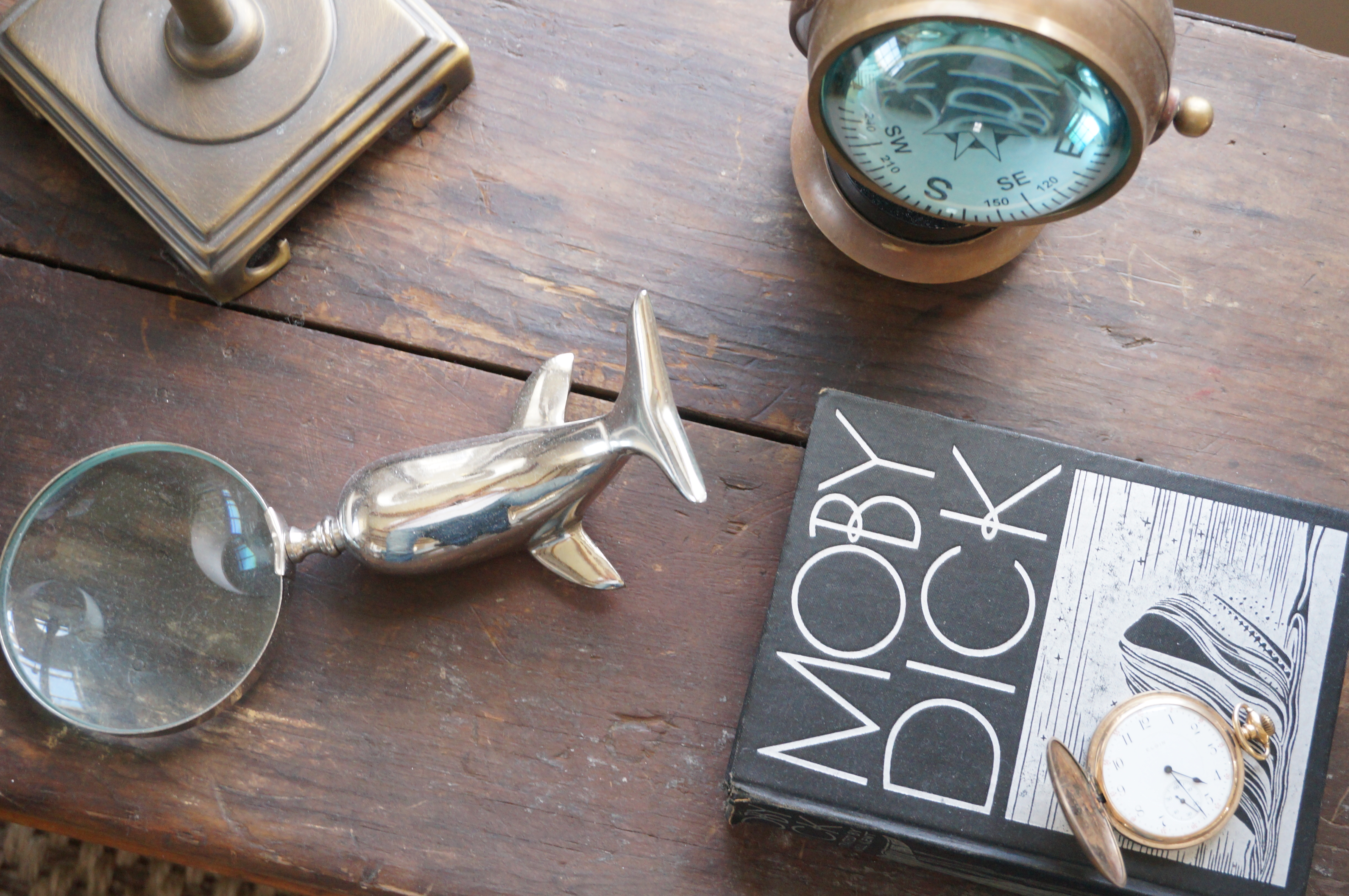The pressures, perils and peculiarities of holiday reading
written for Conservative Home, 15 August 2013  Every August, I go on holiday to the whaling island of Nantucket, and I fail to finish Moby-Dick. It’s not that I don’t find Herman Melville’s tale of a whale a gripping read. As I tell people when I need to prove I’ve read it, it’s a much lighter, funnier book than is often recognised. I love to quote the moment when our nineteenth century narrator, Ishmael, first explores the paradoxes of Providence and gently mocks the self-importance of the life story (despite devoting over two hundred thousand words to his own – that’s two PhD theses):
Every August, I go on holiday to the whaling island of Nantucket, and I fail to finish Moby-Dick. It’s not that I don’t find Herman Melville’s tale of a whale a gripping read. As I tell people when I need to prove I’ve read it, it’s a much lighter, funnier book than is often recognised. I love to quote the moment when our nineteenth century narrator, Ishmael, first explores the paradoxes of Providence and gently mocks the self-importance of the life story (despite devoting over two hundred thousand words to his own – that’s two PhD theses):
“doubtless, my going on this whaling voyage formed part of the grand programme of Providence that was drawn up a long time ago. It came in as a sort of brief interlude and solo between more extensive performances. I take it that this part of the bill must have run something like this:
Grand Contested Election for the Presidency
of the United States
WHALING VOYAGE BY ONE ISHMAEL
BLOODY BATTLE IN AFFGHANISTAN
It’s a wonderful moment, and not just because it reminds us, a century later, that the world’s headlines rarely change. It’s a moment of honesty about that deeply human fear: the fear that our life stories, so essential to us, fade into insignificance against the global picture, even, perhaps, in the mind of God. And it’s also a wry reminder to twenty-first century readers, even those who lack my taste for Elizabethan ‘pattern poems’, that the so-called postmodernists of recent years were hardly the first people to play games with the visual appearance of text.
But most importantly, it’s in the first chapter. So I actually read it. Every year.
To be fair to myself, I have actually completed Moby-Dick once. I read it during my pretentious teenage years, too fast, without savouring it as I should. But as a PhD student in an English literature department, not being au fait with every nuance of the text really doesn’t feel good enough. And it’s just too flowing a narrative to pick up each year and start again where I left off, leaving the text disjointed in my mind. I love those early chapters now, familiar to me as childhood tales – it might just be a good idea to move beyond Chapter 10 out of 135. I might even get to see the whale.
Of course, it hardly seems like a good career move for a young academic of literature to admit to this problem with Moby-Dick. But a cursory search around my colleagues confirms that experts in literature boast more about the books they haven’t read than those they have. For some, it’s the ultimate showcase for their exceptional standards (“it’s so humiliating, I’ve read every issue of English Literary Renaissance, but I never could find that back issue of Margot Heinemann’s 1975 article on Middleton’s A Game at Chess”). But for others, sadly, it’s a proof of the intensity of their specialisation. Just this month, I’ve heard: ‘oh, I’ve never had time to read a single Rushdie. I won’t have time to read anything published after 1780 until after my PhD’. This last, in particular, is a shame – after Midnight’s Children, I’d urge readers to try The Enchantress of Florence, Rushdie’s elegiac tale of rationalism, individualism and the possibilities of pluralism, across three continents and the long span of the Renaissance: in this world of inextricably intersecting cultures, men are “bags of selves, bursting with plurality”. As we learn more about the literary history of lands beyond our own, it should be even more important for my fellow PhD students to enrich those “bags of selves” and complement their traditional specialisations with wide, leisurely reading lists.
This one reason why, in academic circles, David Lodge’s game Humiliation remains my all-time favourite pastime. Like the best games, it first appeared in a novel, but touches on too many sore spots to leave in the world of fiction. Invented in Changing Places, Lodge’s satire on academic life, the game requires each player in turn to confess to a book they haven’t read. Players receive a point from each player who claims to actually have read the book. In other words, the winner is the person with the greatest disparity between his own ignorance and that of his competitors. Lodge’s weedy, British protagonist, visiting an American university in 1969, scores highly with The Story of O. Nowadays, 50 Shades of Grey is the ultimate humble-brag. Every summer, we fail to tick off another of our literary “humiliations”. Year on year, my mother used to pack a couple of volumes of Proust, in French, to get her into the mood for the South of France. And thus it was that, for years, the second volume lay decoratively beside her sun-lounger, dog eared, impressive and, crucially, untouched.
Which brings us to the real problem with summer-reading: the urge to read something suited to the trip. I don’t just mean that some tomes are just unsuitable for the beach, although thanks to a holiday when I was fourteen and carefree with possessions, I am the proud owner of a copy of Gifford’s Complete Annotations to Ulysess which still sprinkles small grains of sand from its spine. In Nantucket, it’s impossible to get away from Moby-Dick: images of the whale splatter the walls of every restaurant, islanders boast about ancestors mentioned in the book… which just makes the whole thing seem so much more of a chore. Instead, by pure serendipity, I’ve allowed myself to be distracted by the collection of Orhan Pamuk’s work my father found in Nantucket’s superb charity shop – with Snow and My Name Is Red, I’ve left waspy New England for the Istanbul of first the early 1990s, and then 1591.
So, perhaps we shouldn’t set off on holiday with bursting suitcases of pre-planned reading. Don’t read for fixed locations – read for changing moods, pick up whatever catches your eye, and only holiday somewhere with a secondhand bookshop. I might not stick to that, but I’ll try not to use a relaxing holiday just to boost my Great Books score-card.






